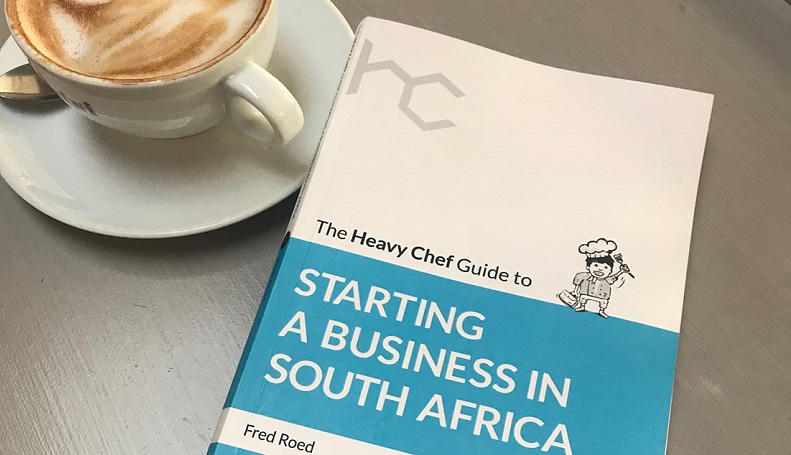In a move that signals a major leap forward in generative AI, OpenAI has quietly rolled out ChatGPT-5, its most advanced model to date….
Heavy Chef founder’s 7 things to look for in a good business partner [Extract]

Good business partners challenge each other, and if both partners are able to recognise that, then a business partnership will be constructive rather than destructive.
This, together with having a complimentary skill set and being financially stable in their own right are among seven key characteristics to look for in a good business partner. So, says entrepreneur and Heavy Chef founder Fred Roed, in his new book Starting a Business in South Africa.
The son of Danish immigrants, Roed knows a thing or two about running a business even if in his owns words his first ventures into business — a centre for children with learning disabilities — was a “spectacular failure”.
“In 2003, with a team of 20 people, the business closed down and I was R1.3m in debt,” he writes.
Here are Heavy Chef founder Fred Roed’s seven characteristics to look for in a good business partner
That same year he and Mike Perk then founded digital advertising company World Wide Creative. Later he started Heavy Chef, to hold events where business owners could speak about the in’s and out’s of entrepreneurship and in his own words to “inspire people to start things”.
Roed says having Perk and later Louis Janse van Rensburg as business partners for World Wide Creative was an essential step towards the company’s success, particularly as each was able to complement the other.
Seven characteristics to look for in a good business partner
In the following excerpt from Starting a Business in South Africa he lists seven essential things to look for in good business partner.
1) A Complementary skill set
Evaluate your strengths and weaknesses in terms of what your business needs to get off the ground. Then partner with someone who can be your “other half” business-wise.
As tempting as it may be, don’t look for someone who is your clone. Acknowledge that you don’t know everything and find someone who knows what you don’t. Simple.
2) Financial stability
In a startup, especially when it’s being bootstrapped, things like theft and misappropriation can be devastating.
Both partners need to be financially stable in their own right. It may not guarantee that funds will be managed honestly and responsibly, but it’s a good place to start.
3) Willingness to learn
Good partners challenge each other — they provide moral and emotional support but they also push each other’s buttons.
A good partnership is built on constructive criticism. For this reason, transparency in a partnership is essential says Heavy Chef founder Fred Roed
Every personal challenge is an opportunity to grow, and if both partners are able to recognise that, then the partnership will be constructive rather than destructive.
4) Same work ethic
It is important that partners feel like they are on the same level — that they are both putting the same amount of effort, time and resources into the business. Similar working habits, timekeeping and the willingness to make the necessary sacrifices, are essential to success.
5) Reliability
It may sound like an obvious requirement, but reliability is a must-have in terms of a good business partner.
And the truth is, you may not know anything about someone’s level of reliability until you’ve been through difficult times with them.
It could be a good idea to have a ‘partnership contract term’ where you allow for a period of re-evaluation after a specified amount of time as partners.
6) Resilience
The first three to five years of a startup journey, are pivotal to its success. And in those formative years, things can get tough.
Glitches appear in systems, products fail, customer service may not be up to scratch. Resilient entrepreneurs will know how to iterate quickly so that the startup doesn’t lose momentum.
Mutual trust and ongoing support is needed if a partnership is to survive the initial challenges.
7) Transparency
Partners need to be accountable to each other. If one individual in the partnership is slacking off, the other partner needs to be assertive enough to let him or her know.
A good partnership is built on constructive criticism. For this reason, transparency in a partnership is essential; it is the foundation for an open, mutually beneficial and healthy working relationship.
Order Fred Roed’s book ‘Starting a Business in South Africa’ here on Heavy Chef.

